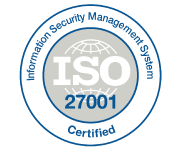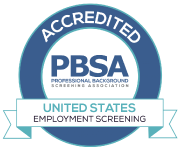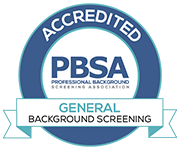See What's Trending In The Background Check Industry
The Importance of Vendor Compliance: Maintaining Safety and Trust in Today's Market
 As the business world becomes increasingly complex and interconnected, organizations must take steps to ensure that their vendors and suppliers are compliant with regulations and industry standards. Failure to do so can result in legal and financial repercussions, damage to reputation, and even safety risks.
As the business world becomes increasingly complex and interconnected, organizations must take steps to ensure that their vendors and suppliers are compliant with regulations and industry standards. Failure to do so can result in legal and financial repercussions, damage to reputation, and even safety risks.
In this article, we'll explore the importance of vendor compliance and how it can help organizations mitigate risk and build trust with their customers.
What is Vendor Compliance?
Vendor compliance refers to the process of ensuring that a vendor or supplier meets the regulatory and industry standards for a particular product or service. This includes verifying that vendors have the appropriate licenses, certifications, and insurance, as well as conducting background checks and screening for criminal history, financial stability, and other risk factors.
Vendor compliance services cover a range of compliance areas, such as environmental regulations, health and safety regulations, labor laws, and product quality regulations. These services help businesses ensure that their third-party vendors comply with the relevant rules and standards, reducing the risk of non-compliance and the associated legal liabilities, loss of reputation, and financial losses.
 Why is Vendor Compliance Important?
Why is Vendor Compliance Important?
Vendor compliance is crucial for several reasons.
First, non-compliance can result in legal liabilities and financial losses.
For example, if a vendor supplies a product that does not meet the regulatory guidelines or quality standards, the business may be held responsible for any harm or damage caused by the product. Additionally, the company may face fines or legal action for non-compliance, resulting in significant financial losses.
Second, vendor compliance is important for maintaining the business's reputation.
If a business's third-party vendor fails to comply with regulatory guidelines or quality standards, it can damage the business's reputation and lead to a loss of customers. Furthermore, if a company is associated with a vendor involved in unethical or illegal practices, it can lead to public backlash and loss of trust.
Third, vendor compliance services can help businesses reduce risks associated with their supply chain operations.
By ensuring that vendors comply with regulatory guidelines and quality standards, businesses can reduce the risk of product defects, supply chain disruptions, and other supply chain-related issues that can result in financial losses and reputational damage.
 Vendor Compliance Service Market: Industry Segments
Vendor Compliance Service Market: Industry Segments
Vendor Compliance in Home Improvement Contractors
Home improvement contractors are a common source of vendor compliance issues, as they often operate without the appropriate licenses or insurance. In addition, some contractors may have a history of consumer complaints or legal disputes.
By conducting thorough vendor compliance checks, organizations can ensure that they only work with reputable contractors who meet all necessary regulatory and industry standards.
Vendor Compliance in Railway Compliance
Railway compliance is a critical area of vendor compliance, as non-compliant vendors can pose a significant safety risk. Railway vendors must adhere to strict regulations related to equipment, maintenance, and personnel qualifications. Failure to comply with these standards can result in accidents, injuries, and even fatalities.
Organizations that work with railway vendors must ensure that they are fully compliant with all applicable regulations and standards.
Vendor Compliance in Truck Driver and Commercial Transportation Compliance
Truck driver and commercial transportation compliance is another area where vendor compliance is critical. Non-compliant vendors can pose a safety risk to drivers and other road users, as well as result in legal and financial penalties for organizations that work with them.
Organizations must verify that their vendors meet all applicable regulations and standards related to driver qualifications, vehicle maintenance, and cargo handling.
Contractor and Vendor Screening
Contractor and vendor screening is a key component of vendor compliance, as it helps organizations identify potential risks and avoid working with non-compliant vendors. Screening may include criminal background checks, credit checks, and reference checks, as well as verification of licenses, certifications, and insurance.
By conducting thorough screening of vendors and contractors, organizations can ensure that they only work with trustworthy and reliable partners.
Key Takeaways
Vendor compliance is an essential aspect of risk management in today's business world. Non-compliance can result in significant legal, financial, and reputational consequences, making it necessary for organizations to ensure that their vendors and suppliers comply with regulatory and industry standards. By partnering with a reliable vendor compliance service provider, businesses can ensure that they only work with reputable partners who meet all regulatory and industry standards.
Contact ISB Global Services to learn about our vendor compliance services and how we can help your organization stay compliant and build trust with your customers.







While we are not affiliated with or employed by these organizations, we may reference our verified status in marketing materials, proposals, and client communications to demonstrate ISB’s commitment to compliance and security.